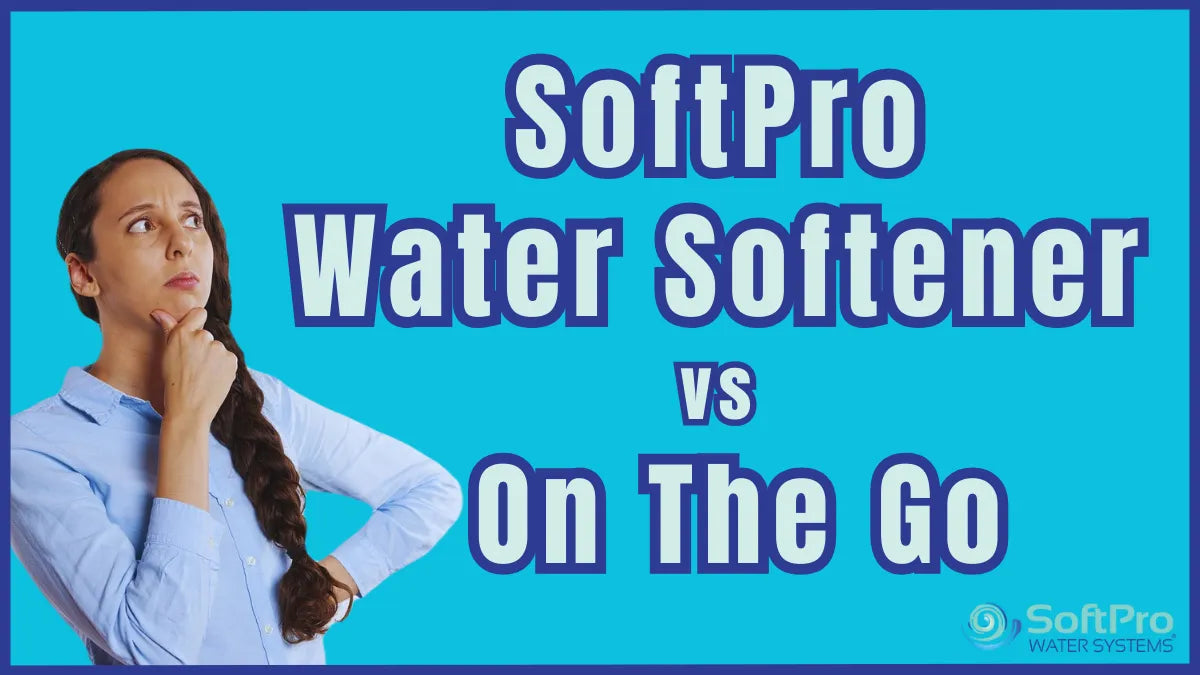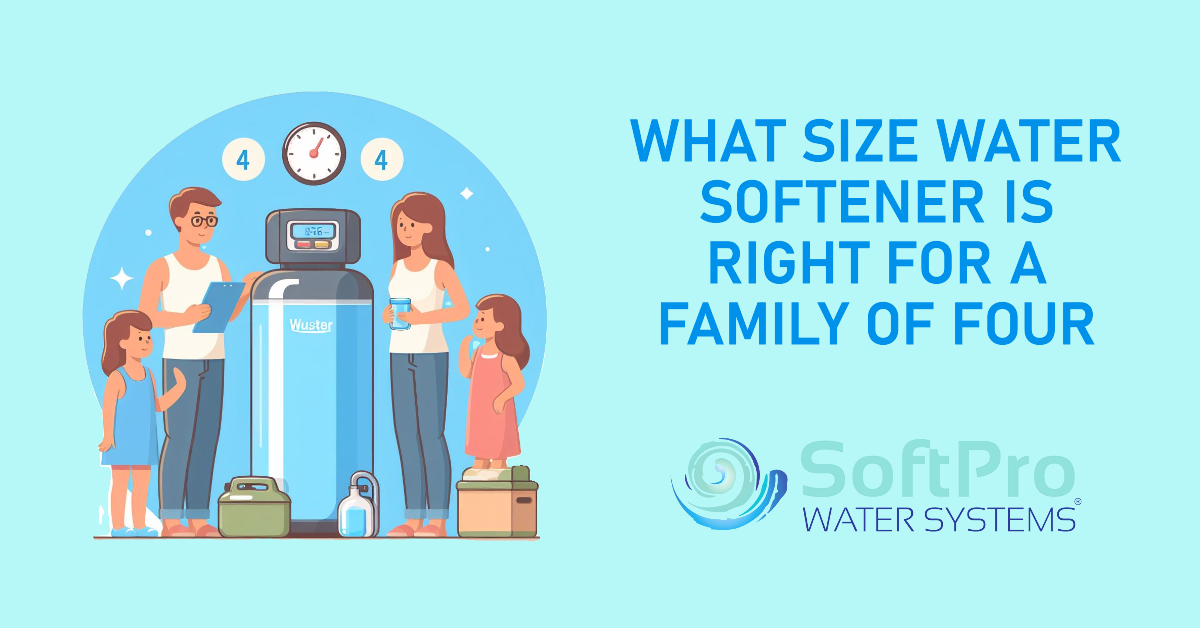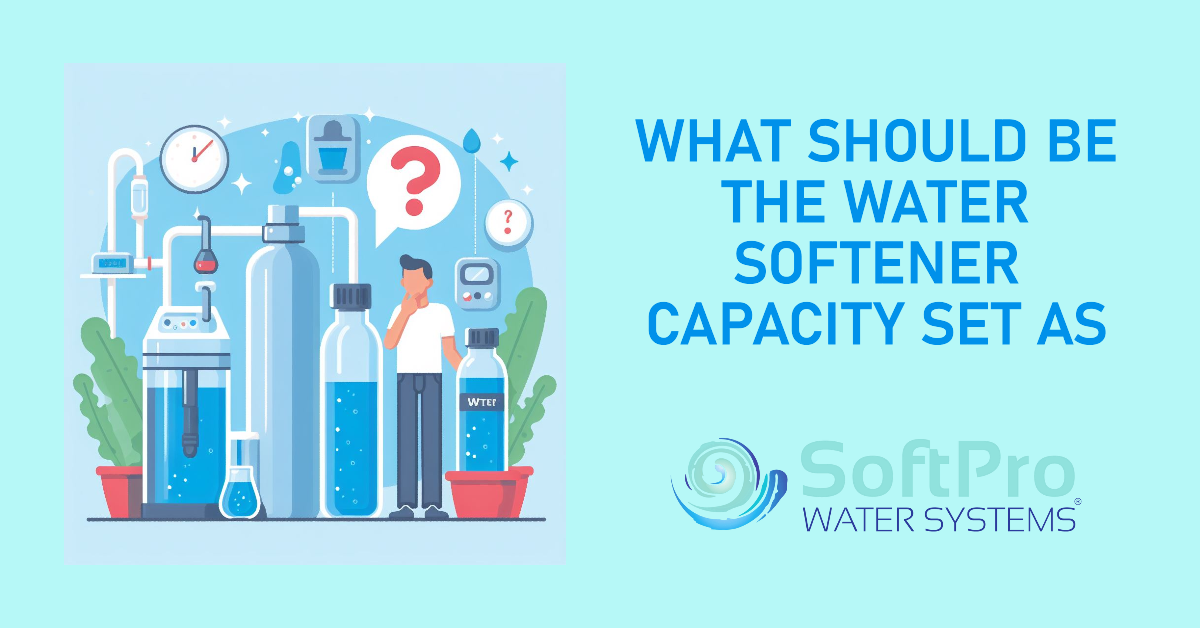SoftPro vs On The Go: Efficiency, Features, Installation, Cost Comparison
Table of Contents
Understanding Hard Water and its Challenges
Hard Water Basics: What is it and why is it a problem?
Hard water is a common household concern, affecting millions of homes around the world. It's characterized by high mineral content, primarily calcium and magnesium, which can cause a range of problems:
- Scale buildup: Hard water minerals leave behind a white, crusty residue on plumbing fixtures, appliances, and dishes, reducing their efficiency and lifespan.
- Soap scum: Hard water interferes with the cleaning power of soap and detergents, leading to soap scum buildup in sinks, showers, and bathtubs.
- Dry skin and hair: Hard water can strip natural oils from your skin and hair, leaving them feeling dry, itchy, and dull.
- Faded fabrics and colors: Hard water can cause premature fading of clothes and towels, and affect the vibrancy of dyes and colors.
- Increased appliance maintenance: Hard water deposits can clog appliance components, leading to breakdowns and higher repair costs.
How can I measure the hardness of my water?
Several methods exist to measure water hardness:
- Test strips: These simple and inexpensive strips change color based on the mineral content of your water, providing a rough estimate of hardness.
- Soap test: Observe how much lather you get when using soap in your water. Minimal lather indicates hard water.
- Professional testing: A water treatment company can conduct a more accurate test to determine your specific water hardness level.
What are the common signs and effects of hard water in homes?
Besides the visible signs like scale buildup and soap scum, other indicators of hard water include:
- White film on dishes and glasses after washing
- Dry and itchy skin after showering or bathing
- Scratchy clothes and towels
- Reduced cleaning effectiveness of detergents
- Noisy washing machines and dishwashers
The Impact of Hard Water: Why Treat it?
How does hard water affect appliances and plumbing fixtures?
Hard water's mineral deposits can wreak havoc on your plumbing system and appliances in several ways:
- Clogged pipes and valves: Mineral buildup can restrict water flow, leading to lower water pressure and potential leaks.
- Damaged appliances: Scale buildup can reduce the efficiency of water heaters, dishwashers, and washing machines, shortening their lifespan and increasing energy costs.
- Malfunctioning valves and faucets: Mineral deposits can jam valves and faucets, making them difficult to operate or causing leaks.
- Corrosion: Hard water can accelerate the corrosion of metal pipes and components, leading to leaks and structural damage.
Can hard water negatively impact skin and hair health?
Yes, hard water can negatively impact skin and hair health in several ways:
- Dryness and irritation: The minerals in hard water can strip natural oils from your skin and hair, leaving them feeling dry, itchy, and irritated.
- Eczema and dermatitis: Hard water can exacerbate existing skin conditions like eczema and dermatitis.
- Dull hair and scalp problems: Hard water can make hair appear dull and lifeless, and can contribute to scalp problems like dandruff.
What are the potential cost implications of untreated hard water?
Untreated hard water can lead to several hidden costs:
- Increased appliance repairs and replacements: Hard water shortens the lifespan of appliances, leading to more frequent repairs and replacements.
- Higher energy bills: Hard water reduces appliance efficiency, leading to increased energy consumption and higher bills.
- Water softener installation costs: If you decide to address hard water later, you'll incur the cost of installing a water softener system.
- Potential home value decrease: Homes with hard water may be less desirable and fetch lower prices in the real estate market.
By treating hard water, you can improve your home's comfort, protect your appliances and plumbing, and potentially save money in the long run.
Water Softening Solutions: Whole-House vs On the Go
Whole-House Water Softeners: The Traditional Approach
Whole-house water softeners tackle hard water at its source, treating all the water entering your home. This offers several benefits:
- Consistent soft water: All appliances and faucets in your home receive soft water, eliminating hard water problems throughout the house.
- Convenience: No need for portable systems or special attachments for specific appliances.
- Reduced maintenance: Modern water softeners are automatic and require minimal maintenance.
However, whole-house softeners also have drawbacks:
- Installation costs: Professional installation is usually needed, making them the more expensive option upfront.
- Maintenance requirements: Regular salt and filter replacements are necessary.
- Space requirements: These systems can be bulky and require dedicated space for installation.
On the Go Water Softeners: A Portable Solution
On the go water softeners offer a more portable and flexible approach, ideal for specific needs:
- Travel and temporary use: Perfect for apartments, RVs, or travel destinations with hard water.
- Point-of-use treatment: Treat water for specific appliances like dishwashers or coffee makers.
- Cost-effective: Typically more affordable than whole-house systems.
However, on-the-go options have limitations:
- Limited capacity: They treat smaller volumes of water, making them unsuitable for whole-house use.
- Manual operation: Some require manual filling and filter changes.
- Performance: Softening effectiveness may not be as consistent or powerful as whole-house systems.
Head-to-Head Comparison: SoftPro vs On the Go
Efficiency Showdown: Salt Usage and Water Waste
- SoftPro: High-efficiency models minimize salt and water usage through features like demand-based regeneration and smart technology. Some models claim up to 75% salt and 64% water savings compared to traditional softeners.
- On the Go: Efficiency varies depending on the type and size. Countertop models generally use less water and salt than travel-sized options. Look for features like flow-through designs and automatic shut-off.
Feature Face-Off: Matching Needs with Capabilities
- SoftPro: Offers advanced features like grain capacity displays, leak detection, and Wi-Fi connectivity for remote monitoring and control. Some models cater to specific needs like well water treatment or high flow rates.
- On the Go: Features vary widely. Some offer basic softening, while others include filtration for additional contaminant removal. Consider features like adjustable settings, portability, and ease of use.
Installation and Maintenance Matchup: Convenience vs Expertise
- SoftPro: Typically requires professional installation by a plumber. Regular maintenance includes salt refills and occasional filter changes.
- On the Go: Installation-free for most models. Some require simple cartridge changes or filter replacements, while others are disposable.
Cost Comparison: Balancing Budget with Benefits
- SoftPro: Higher upfront cost due to installation and system size. However, long-term savings on salt, water, and appliance repairs can offset the initial investment.
- On the Go: Generally more affordable upfront, but ongoing costs for filters or cartridges can add up. Consider the frequency and cost of replacements for your chosen model.
Making an Informed Choice: Choosing the Right Softener for You
Considering Your Needs and Context: Prioritizing the Right Factors
- Water hardness level: Determine your water hardness level to choose a softener with sufficient capacity. SoftPro offers a wide range of grain capacities to cater to different hardness levels.
- Household size and water usage: Choose a system with adequate capacity for your typical water consumption. SoftPro models cater to various household sizes.
- Budget and space constraints: Consider your budget and available space for installation. On-the-go options might be suitable for smaller budgets or temporary needs.
- Desired features and convenience: Prioritize features like automatic operation, smart control, or specific filtration capabilities based on your preferences. Both SoftPro and some On-the-Go models offer advanced features.
- Portability and travel needs: If you need softening on the go or for temporary use, On-the-Go options are ideal.
Additional Resources and Support for a Confident Purchase
- Water softener reviews and comparisons: Research online reviews and comparisons of different brands and models to find the best fit for your needs.
- Water softener sizing calculators: Utilize online calculators to estimate the required grain capacity for your specific water hardness and usage.
- Professional consultation: Consider seeking advice from a water treatment professional for personalized recommendations and installation assistance, especially for complex needs.
SoftPro vs On the Go: Finding the Perfect Fit
Choosing between SoftPro and On-the-Go water softeners depends on your individual needs and priorities. SoftPro excels with its whole-house efficiency, advanced features, and long-term cost-effectiveness, making it ideal for permanent solutions in homes with high water usage or specific treatment requirements. On-the-Go options shine in portability, convenience, and affordability, suitable for temporary needs, travel, or point-of-use treatment for specific appliances.
Ultimately, the best choice lies in a thorough assessment of your water hardness, usage patterns, budget, and desired features. By carefully evaluating your needs and utilizing available resources, you can confidently choose the water softener that delivers optimal performance, convenience, and value for your home.
You can also read more articles about SoftPro compared to other brands, including SoftPro vs Nuvo H20 and SoftPro vs Pelican Water Systems.




![SoftPro Chlorine+ Carbon Whole House Water Filter to Remove PFAS, Chlorine, Chloramine & Pesticides [City Water Filters Series]](http://www.softprowatersystems.com/cdn/shop/products/softpro-whole-house-chlorine-filter-282008.jpg?v=1758858973&width=140)
![SoftPro Iron Filter - Iron Master AIO - Best Iron Filter for Well Water [Air Injected Water Filter / Katalox]](http://www.softprowatersystems.com/cdn/shop/products/softpro-iron-master-aio-water-filtration-system-remove-iron-sulfur-manganese-using-air-injection-for-optimal-performance-412868.jpg?v=1758859831&width=140)













